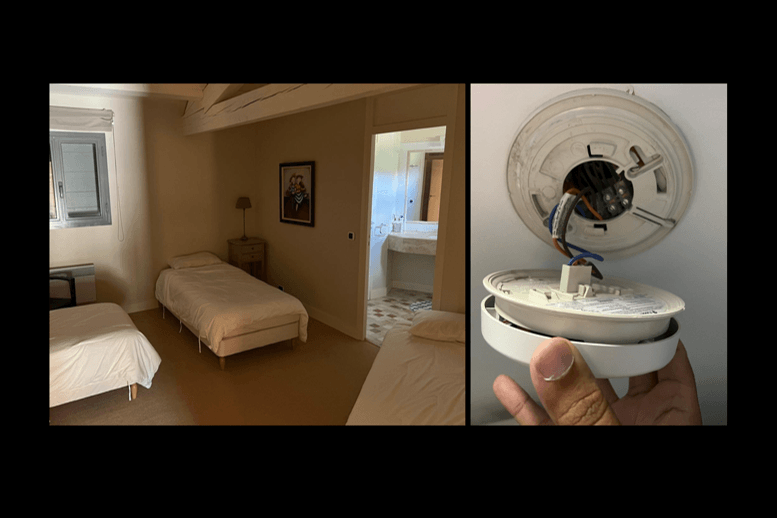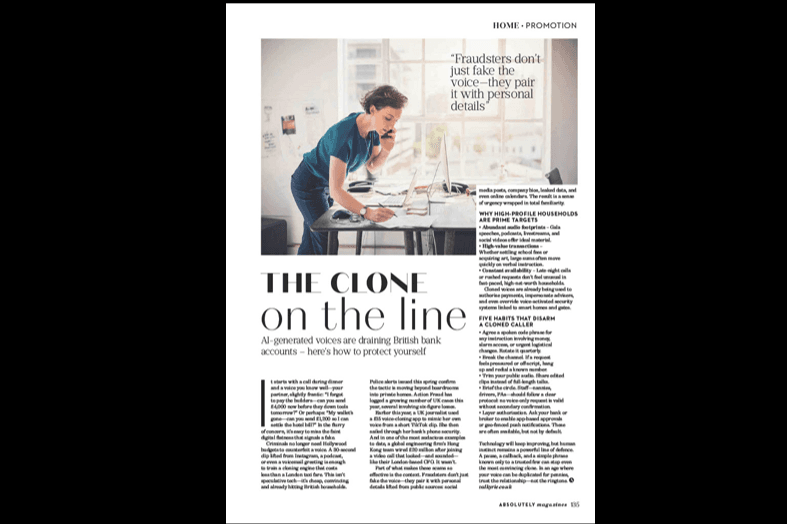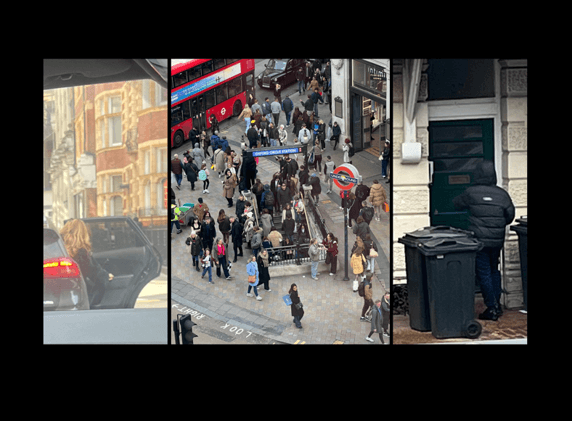An Emergency Relocation Plan (ERP)/check list
There are many reasons why someone may need to relocate in an emergency e.g. violent partner, threat to life etc.
An Emergency Relocation Plan (ERP) should focus on the things you can do in advance to be better prepared in case you have to leave a potentially violent situation very quickly. The aim of the document is to provide headline considerations (check list points) to enable advanced planning.
An ERP is a way of helping protect yourself and your family. It helps you plan in advance for the possibility of a short notice event that could present a threat to life.
In an emergency, always call the police on 999
Action point: A decision is required to be made on where best to relocate to, also have an alternative should the primary option not be possible
General:
Plan in advance and detail how you might respond in different situations, including crisis situations
Once an ERP is formulated rehearse the steps you will need to take, if you have to leave at short notice. If plans are rehearsed, they generally work better, and issues/problems can be highlighted and rectified. Basic decisions can become difficult under pressure and if well-rehearsed and planned they allow for an element of operating on ‘autopilot’
Think carefully about the different options that may be available to you – pros/cons – and then decide on the best and most suitable
Always keep important and emergency telephone numbers (e.g. the police) with you at all times – inputted into your mobile phone
Communication plan – Create a text group (avoid Social-media) – suggest WhatsApp in order you can share updates and info, this is important as you may need to action the plan short notice and when apart. In addition have identified RV points (emergency meeting places) that you can pick up from, this will save time and avoid the need to return home, important if time is of the essence
Are there neighbours you can fully trust, IF SO, could you utilise in an emergency short notice/temporary relocate? If so, tell them what is going on, and ask them to call the police if they hear sounds that indicate a violent attack
Ensure all important documentation (passport, wallet, purse etc.) is always readily available, also keep a working amount of money for emergency use
Always keep your mobile phone on you or close by, keep charged and have a backup power supply
If for some reason an attack is imminent and you have limited time to react and fully action the plan, identify a location near-by location (bolt-hole) you can initially shelter in (for approx. 30mins) and once safe to do so you can then action the plan in full. Avoid the kitchen or garage where there are likely to be knives or other weapons; and avoid rooms where you might be trapped, such as the bathroom, or where you might be shut into a cupboard or other small space
Always be prepared to leave the house in an emergency and at short notice
Preparing to leave:
Events will clearly determine the need to leave BUT prior planning and preparation is key to timely decision making and subsequent actions – know what you’re going to do
Plan to leave at any time – day or night. Plan to take everything you will need, including any important documents relating to yourself and the family, as you may not be able to return for some time
Planning doesn’t necessarily mean you will have to leave, but it will ease a difficult and potentially stressful time should you need to action. It also allows you to consider all the options and think about how you could overcome the difficulties involved
Decide on what vehicle(s) you need and ensure they are fully serviceable at all times, including always filled up with fuel
Investigate and become knowledgeable with/of the route to the relocation property, have alternatives if needed
All family members should pack an emergency ‘go-bag’, and have it immediately accessible and good to go at short notice – basic contents suggestions below
Sanitize the house in order no information can be found indicating addresses and locations that the family have relocated to. If the quantity is large, consider procuring a safe in order additional documents and items can be secured
Once a decision is made on the relocation (property) limit who you inform – ONLY inform trusted contacts and avoid informing neighbours in close proximity to home who may be questioned
Do not inadvertently/casually mention anything in regard to the plan on social-media
If time allows – Check all windows/doors are secure and utilities are switched off
What to pack – Emergency ‘GO-BAG’
Ideally, you need to take all the following items with you if you leave. Some of these items you can try to keep with you at all times; others you may be able to pack in your ‘emergency GO-BAG’.
Choose a suitable bag, an emergency go-bag should be lightweight and easy to carry, but large enough to hold essential items needed for up to 3 days. A backpack (ruck-sac) is a good choice because it leaves your hands free to hold onto other items, but a small suitcase with wheels can also work.
Place the go-bag near an exit with your other essential items – purse, mobile-phone (+ charger), and car/house keys etc. get in a daily routine of doing this
Have a good/reliable torch (spare batteries) immediately available positioned on top of your go-bag. Recommend a head torch
All forms of identification – passport, driving licence etc.
Other sensitive documentation such as Birth certificates etc.
Money, bankbooks, cheque book and credit/debit cards etc.
Keys for house and cars. (You could consider getting an extra set of keys cut and put them in your emergency go-bag. You may need to consider leaving an extra set with someone you identify and trust in order they can visit the house and check up on it. Keys will also be required for whoever looks after the animals
Medications, suggest 3 days’ supply of each type
Ensure you have keys for the property you are relocating to
Copies of documents relating to your housing tenure (for example, mortgage details – may not be relevant). Any relevant Insurance documents etc.
Address book (if you have one) do not leave this type of info behind
Family photographs, diary, jewellery, items of sentimental value
Clothing and toiletries (toothbrush/paste, deodorant, wet wipes, etc), you require for immediate/short term use, more can be pack in the vehicles if there is limited clothing at the relocation property
Small amount of food and water for the journey in order to avoid stopping en-route
Pack an extra pair of glasses or plenty of contact lens
Small first aid kit with all the basic items
Maintain your go-bag, once finalised check it at least every 4 weeks to rotate food and water supplies, refresh medications, update documents etc.
Protecting yourself after you have left:
Once you have successfully relocated you may still be at risk, it is best to limit who you inform unless they are fully trusted, there is always the possibility that someone could inadvertently give out information allowing someone to follow up and potentially investigate your new location.
Do not drop your guard and stay alert
Try to alter your routines as much as you can, don’t set pattens
Fully familiarise yourself with the area around the new property, identify the best routes to/from key places you will need to visit – shops, cafes etc. alter the routes you take and the form of transport you use, when approaching or leaving places be extra vigilant
Highly unlikely, BUT mobile phones can be ‘tracked’ this is only supposed to happen if you have given your permission, but is still possible, unsure any mobile phone tracking software/applications are disabled
Ensure all the family and trusted friends understand the need to keep your address and location confidential
The biggest concern regarding the capability to ‘find’ someone is social-media (SM). Ideally, I recommend it’s not utilised at all. BUT if it is a high level of discipline should be employed. It is generally very easy to locate someone via SM
Ensure parking is available at the relocation property – this is important as any parking fines will likely be sent to SF thus indicating where the relocation property is
Consider changing your car/vehicle for a different make and model
Miscellaneous points:
Consider redirecting mail to new relocation address
List and take all contact numbers for local services you receive in order you can cancel or settle outstanding bills once relocated
It may be wise to limit interaction with new neighbours initially once relocated
Ensure the relocation property has an adequate level of security, if not consider Installing a new security system, especially in regard to access/door control
Check your vehicle(s) for a Global Positioning System (GPS)/trackers which may have installed in or under your car to track your movements. Look for anything that appears out of the ordinary and appears to have been added to the car
If several people are relocating task each person with responsibilities for/during the relocation e.g. vehicles, keys, check-list etc.
Do not dismiss something that appears out of the normal – inform each other and discuss
Do not answer your mobile phone if you do not recognise the number
If you have a landline at the new property, ensure it is ex-directory
Consider a high level of electronic security measures when relocated – create new email addresses, blocking unwanted emails
Do not put your name in your apartment building directory or mailbox etc.
Have a plan for any pets/animals you may need to relocate with you













